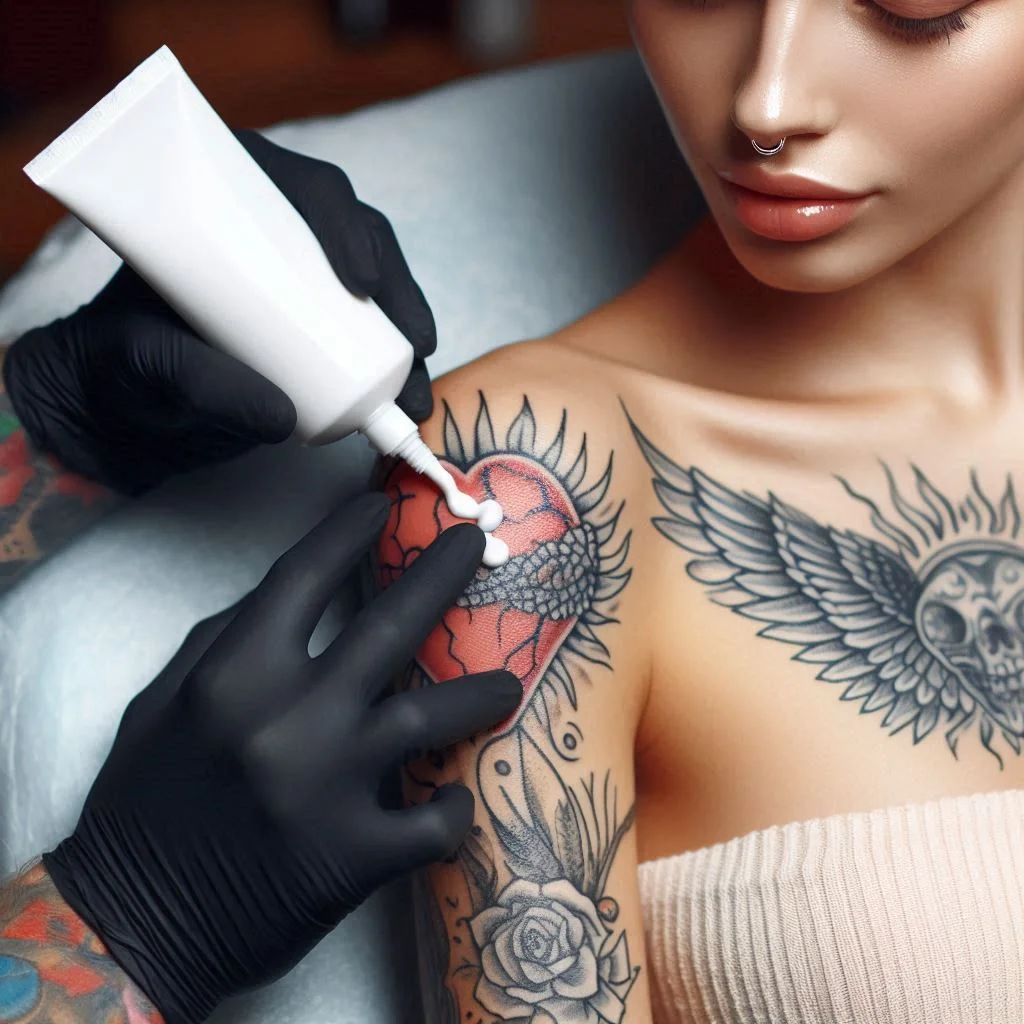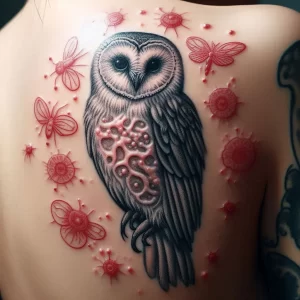Introduction: Is Aquaphor Really Safe for Your Tattoo?
Tattoo aftercare is just as important as choosing the right design or artist. Many people turn to Aquaphor, a popular healing ointment, for tattoo care. But is it actually the best choice for your fresh ink?
Though Aquaphor is frequently suggested, it possesses some drawbacks that hamper healing, ink loss, and even pore clogging. In this article, we’ll see why Aquaphor is not so great for tattoo aftercare and why you should opt for safer alternatives to guard your new tattoo.

Why Is Aquaphor Bad for Tattoos?
Aquaphor is a petroleum-based cream that forms a thick, protective layer on the skin. Although this may sound like a good thing, it can actually cause more harm than good when used on a new tattoo.Does Aquaphor Clog Pores?
Yes, Aquaphor is an occlusive agent, which means it forms a thick layer on the skin. This seals in dirt, bacteria, and excess moisture, which can clog pores and hinder the healing process.Does a Tattoo Require Oxygen to Heal?
Yes. New tattoos require oxygen to heal, and Aquaphor forms a barrier that keeps oxygen from penetrating the skin. This can cause a slowdown in healing, make infection more likely, and impact the end appearance of your tattoo.Can Aquaphor Trigger an Allergic Reaction?
Though rare, certain individuals are allergic to some ingredients in Aquaphor. You might experience the following symptoms:- Redness and irritation
- Severe itching
- Rashes or breakouts surrounding the tattoo
- If you observe any of these symptoms, discontinue the use of Aquaphor and switch to a hypoallergenic substitute.
Is Aquaphor Petroleum-Based?
Yes. Aquaphor is petroleum-based, which means it comes from crude oil. Although petroleum jelly is great for dry skin, it’s not the best for new tattoos.What Are the Risks of Using Petroleum-Based Products on Tattoos?
- Blocks oxygen flow – Slows down the natural healing process.
- Attracts bacteria and dirt – Raises infection risk.
- Can lead to ink fading – Over-moisturizing can draw ink out of the skin.

What Are Safe Alternatives to Aquaphor for Tattoo Aftercare?
Replace Aquaphor with lighter, non-petroleum products formulated for tattoo healing.What Are the Best Tattoo Aftercare Products?
1. Fragrance-Free Lotions
Light, airy, and chemical-free, fragrance-free lotions such as Lubriderm or Aveeno provide your tattoo with moisture without plugging pores.2. Coconut Oil
As a natural antibiotic, coconut oil reduces inflammation and calms sore skin.3. Aloe Vera Gel
Aloe vera is cooling, calming, and accelerates healing. Use pure, alcohol-free aloe vera gel to avoid irritation.4. Specialized Tattoo Aftercare Products
Numerous brands have tattoo-specific aftercare products designed to heal ink without clogging oxygen flow. Some popular choices are:What Is Best Practice for Tattoo Aftercare?
To help your tattoo heal richly and perfectly, take the following necessary steps:How Much Should You Wash Your Tattoo?
Gently clean your tattoo with lukewarm water and gentle, fragrance-free soap twice a day to rinse off excess ink, blood, and plasma.H3: How Much Moisturizer Should You Apply?
Less really is more here. Use just a thin amount of moisturizer to prevent blocking pores. Excessive moisturizer can make colors fade or produce healing issues.What Should You Not Do During Tattoo Healing?
- No sunbathing – Oceans and pools have bacteria.
- No long sun exposure – UV light spoils ink very fast.
- No picking or scratching – This scarring can occur.
What Tattoo Artists Have to Say About Aquaphor
Most professional tattoo artists do not recommend petroleum-based ointments such as Aquaphor because they may cause clogged pores, delayed healing, and color depletion of the ink. Instead, they suggest light, breathable moisturizers that are specially formulated for use on tattoos.Conclusion: What’s the Best Way to Heal Your Tattoo?
While Aquaphor is commonly used in tattoo aftercare, it may not be the best option for optimal healing. Its petroleum-based formula can trap bacteria, clog pores, and slow down oxygenation, leading to longer healing times and potential ink fading. For smoother, faster healing, opt for safer alternatives like:- Fragrance-free lotions
- Coconut oil
- Aloe vera gel
- Tattoo-specific aftercare products By choosing the right products, you’ll keep your tattoo vibrant, crisp, and healthy for years to come!